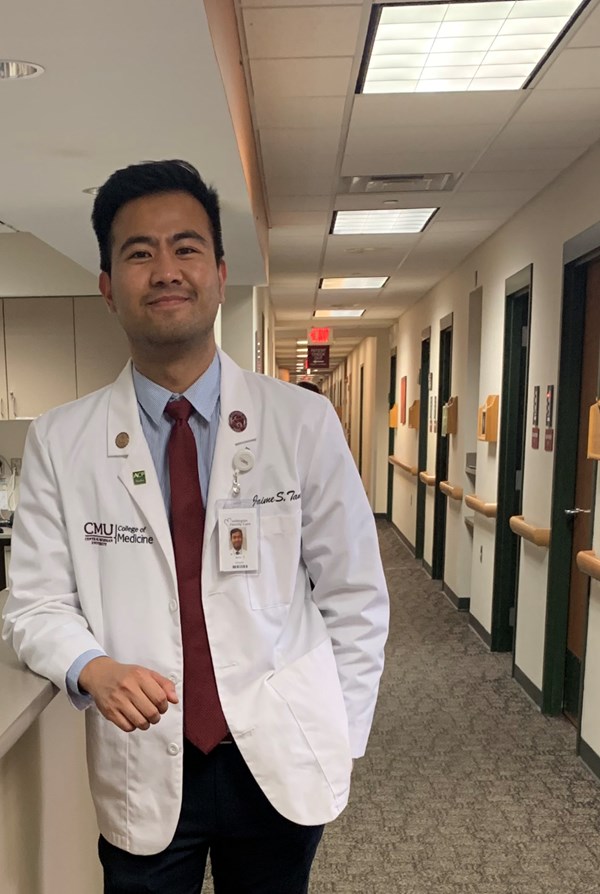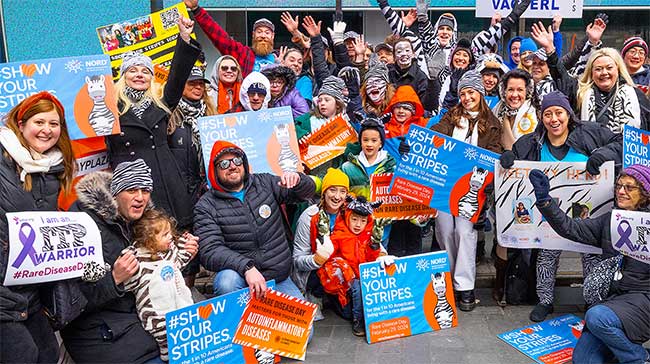NORD’s Educational Initiatives team spoke with Jaime Tan, Central Michigan University medical student and NORD Students for Rare Chapter Leader. In this interview, Jaime talks about how he came to be involved in the rare community. For more information on NORD’s student programs, click here.
- Tell us a little bit about yourself! Where are you from?
My name is Jaime Tan. I’m from Burbank, California.
- Where did you attend undergraduate school and what did you study? Where are you now and what are you studying?
I received my RN/nursing degree from Los Angeles Valley College. Then, I attended UCLA where I was a triple major and received my bachelor’s degrees in Molecular, Cell, Developmental Biology; Human Biology and Society; and Anthropology. I’m currently a medical student at Central Michigan University (CMU), which is in Mount Pleasant, MI.
- Where did your interest in rare diseases come from?
When I was an undergraduate and during my post-baccalaureate, I became involved in extensive basic science research. Most of the research involved rare diseases (Waardenburgh-Shah Syndrome, Hirschsprung Disease, etc.). I also did work involving Desmoplastic Infantile Ganglioma and intrahepatic bile duct cancer. I was consistently amazed by the numbers and statistics while doing research on those diseases.
Then, during my first year of medical school, I attended a lot of student meetings and events. The rare diseases student interest group’s events always stuck with me. Talking to patients and families and learning about academic presence of rare diseases were enlightening. To this day, I remember the first rare disease speaker I saw, a woman with Marfan syndrome. Hearing her experiences and perspectives was a transformative and inspiring event.
- Why did you decide to join/start a NORD Chapter?
I thought it was something that should be told and starting a NORD chapter is a great way to get the word out. My classmate, Mary Gipson, and I then decided to promote the NORD chapter at CMU. We have worked hard to bring speakers and hold events that hopefully make an impact to our fellow students the way it has impacted us.
- You are attending the NORD Summit in October. What are you most hoping to gain from the experience?
I am looking forward on meeting other students, health professionals, and advocates who have interest in rare diseases. It would also be nice to see the latest advancements and policies relating to rare diseases.
- As a future healthcare provider, how do you hope to support the rare disease community?
Everyone who goes through their medical education should be familiar with rare diseases and the impact they have on patients, families, health professionals, and researchers. Every type of physician, whether a specialist of a primary care provider, should keep rare diseases in mind – excluding them from initial differentials is a disservice. I will always be an advocate of this practice of considering rare diseases. Hopefully, I would also be given the chance to get involved in research projects that pertain to rare diseases.
- What would you say to other students who are interested in rare diseases?
A rare disease may be something that affects 1 person out of 100,000 but helping that 1 person is just like helping a person with the flu – except the person with the rare disease has potentially less of a support system and fewer medical resources and therapeutic options. Finally, it’s not a matter of learning about all the rare diseases, but it’s more of getting into the habit of thinking outside of the box and considering a diagnosis no matter how rare it may be.




